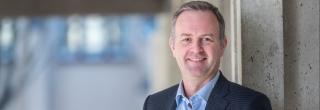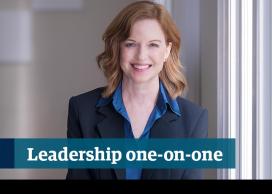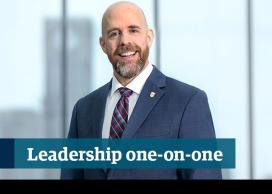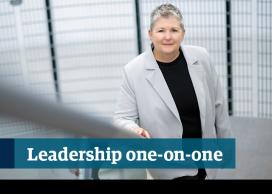Dr. Matthew Evenden is Associate Vice-President, Research and Innovation at UBC Vancouver. He is a professor in UBC’s Department of Geography and is a renowned scholar in the area of environmental and water history in Canada. In his 20 years at UBC, Matthew has contributed to various university-wide committees and initiatives. In 2010/11, he was a recipient of the UBC Killam Prize, for his scholarship and teaching. Since 2015, he served as the Associate Dean, Research and Graduate Studies in the Faculty of Arts, before moving into his current role in 2019.
In his role as Associate Vice-President, Research and Innovation, Matthew shares the leadership of the diverse range of portfolio units and initiatives that support UBC’s research and innovation activities. This includes units supporting grant development, book publishing, human research ethics and knowledge exchange, as well as providing support and resources for Indigenous communities and university researchers collaborating on projects.
Q1. What quality do you most admire in a leader?
ME: Integrity paired with vision matters most for me. Without integrity, nothing else matters, but there also needs to be a sense of direction and purpose.
Q2. What makes you laugh?
ME: I laugh quite easily at a range of things, but when I need a serious laugh to take some time off, I enjoy watching the British quiz show, Would I Lie to You?. The comedians and situations are hilarious.
Q3. Who inspires you, and why?
ME: My teachers. I think of high school teachers like Mr. Lindahl and Mr. Urquhart who taught me history and biology, and university professors like Colin Duncan, Elinor Melville and Viv Nelles who taught me environmental history. I was lucky from the start to go through BC’s excellent public system and to learn from teachers who challenged and inspired me.
Q4. For you, what makes UBC different?
ME: I think UBC represents something unique in terms of the sheer breadth and variety of the subjects our researchers and scholars engage and excel in, and in the connections we build across these subjects. We have strengths across the board, but it’s a unique blend. Also, our geographical position is distinct — where we are located in the province, country and the world creates all kinds of opportunities at UBC and for UBC in the world.
Q5. What is the most important lesson you’ve learned, in your career to date?
ME: You don’t know what you don’t know! To make better decisions, you need to talk to others and consult to gain a better understanding.
Q6. How do you like to recharge?
ME: I enjoy travel — both locally and internationally, although I haven’t been doing that much lately. I also love to walk in the forest with my family and our dog.
Q7. What is the best advice you were ever given?
ME: Have the courage of your convictions. You might not always carry the day, but it’s good to know you stood up for what you believed in.
Q8. What do you value in your colleagues?
ME: I really value collaborative colleagues who are able to communicate well with one another. That allows us to pursue the big goals we set as a team with clarity and purpose.
Q9. What do you hope will be your lasting impact at UBC?
ME: I would like to make UBC an even better place to conduct research. Part of this vision is to help to bridge some of the gaps that we inevitably experience in such a large institution, between disciplines and Faculties.
Q10. If you could have a super power, what would it be?
ME: While I’d love to have many superpowers, if I were to narrow it down to one, I’d choose the ability to talk to animals. Caring for my dog would be so much easier for one, but just imagine the additional insights we would have into our world and our place within it.
Q11. How does innovation relate to research across the broad range of disciplines at UBC?
ME: Innovation is sometimes defined in strict commercialization terms, where you make a discovery (for instance, a technology), apply it in the world and then try to license that technology or spin-off a company. While this is a hugely important aspect of innovation, and UBC is a great generator of ideas and creating impact in the community, there is more to innovation than this.
Innovation is also about fostering enterprise among students and colleagues and nurturing external relationships with partners. At UBC, it’s about knowledge exchange as well, and this involves engaging the community, contributing to policy discussions and sharing ideas in a reciprocal manner. In this sense, there are many ways in which UBC contributes to innovation in society and important public debates.
Q12. COVID-19 has affected all of our research community; what do you imagine the longer-term impacts may be for the research environment and how we conduct research?
ME: It is certainly true that all of our research community has been impacted, whether that has been through being unable to conduct in-person research projects, restrictions on access to labs or an inability to use library resources fully. One of the big things that COVID-19 has reinforced is how the research environment isn’t experienced equitably by everyone. We have seen how early career researchers, women and racialized faculty have been particularly impacted, and we must focus on how a full re-engagement of research can be done in an equitable fashion, recognizing the many factors that have impacted each one of us very differently.
Published: April 12, 2021
Interviewed by: Aditi Ghosh, UBC Internal Communications



